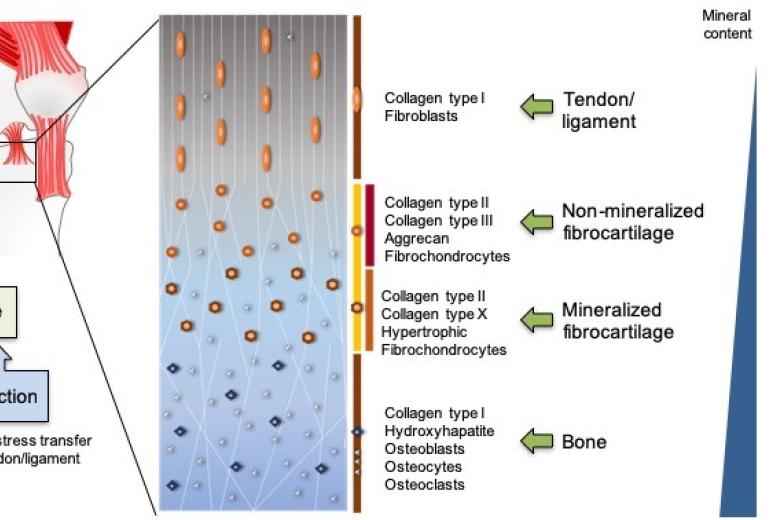MERLN Research
Research at MERLN is focused on developing novel and breakthrough technologies to advance the field of repair and regeneration of both tissues and functional organs. The strategy includes, amongst others, the development of “smart” biomaterials which can trigger intrinsic tissue repair mechanisms mediated by the patient’s own cells.
MERLN Research lines
Instructive Biomaterials Engineering (IBE)
Led by: Sabine van Rijt – Profile page
Research at IBE is inspired and driven by materials science and engineering. The group aims at developing “smart”, instructive synthetic biomaterials for tissue and organ regeneration, with focus on inorganic materials for regeneration of connective tissue.
IBE's main objectives are:
- The design and fabrication of biomaterials for regenerative medicine with closely controlled properties, by combining different material types and fabrication technologies
- Fundamental study of biological mechanisms behind interactions of biomaterials and cells/tissues, with the aim of designing and developing novel instructive biomaterials.
- Application of bioinorganics as synthetic “growth factors”
- Biomineralization
- The development of screening platforms (e.g. based on microfluidics) to increase throughput of screening interactions of materials with the biological
environment and rate at which new biomaterials are developed - Fabrication of highly functional film-based biomedical microdevices by micro and nanoscale 3D forming and superimposed patterned surface and bulk modification of thin polymer films
- Engineering of artificial cellular microenvironments and of in vitro 3D tissue and organ analogues using the aforementioned 3D film micro- and nanotechnologies
- Lithography for multiscale hierarchical 3D substrates, e.g. 3D nanoimprint, 3D deep UV or 3D X-ray lithography
Research Highlights
- Engineering of calcium phosphate ceramics to be used as instructive biomaterials in regeneration of hard tissue and the use of bioinorganics as alternative synthetic “growth factors”.
- Patterning of bioceramics to study their interactions with biological systems in a controlled manner.
- Application of fundamental knowledge on biomineralization to develop improved strategies for regeneration of bone and bone-to-soft tissue interfaces.
Complex Tissue Regeneration (CTR)
Led by: Lorenzo Moroni – Profile page
At CTR, advanced macro, micro and nanobiofabrication technologies are developed and combined with fundamental knowledge of biology and materials chemistry towards the design of complex tissues and organs. With an emphasis on high-throughput approaches, potential applications of such constructs include stem cell research, developmental biology, cancer research, pharmaceutical or toxicological screening, tissue regeneration and bioartificial organs.
The technological bases for the fabrication of such constructs, ranging from bioprinting to advanced microwell arrays, are:
- Additive manufacturing technologies for building functional 3D scaffolds, such as 3D fiber deposition
- Advanced electrospinning technologies for generating extracellular matrix-like fibrous meshes
- Bottom-up tissue engineering based on micro and nanoengineered objects as instructive microscaffolds
- Scaffold-free, self-assembled 3D tissues/organ spheroids
- Dynamic and responsive polymeric and supramolecular materials for the control and influence of cellular response
-
Integrate neural and vascular cues in tissue and organ regeneration strategies.
-
Engineer the immune response of biomaterials, scaffolds, and biomedical devices.
-
Design of scaffolds able to control and steer (stem) cell activity
MERLN research centres around the following research lines
Valorisation
At MERLN we aim to maximize outreach and commercialization of our research. We develop novel materials and surfaces for tissue regeneration in combination with platforms and devices that will solve critical medical problems. A major effort of the institute is to translate the knowedge generated into products that have an impact on society and the world. This includes the licensing of our inventions and the start-up of new companies.
An impression of our start-up companies involving MERLN researchers and staff is available on our Partnerships page.
